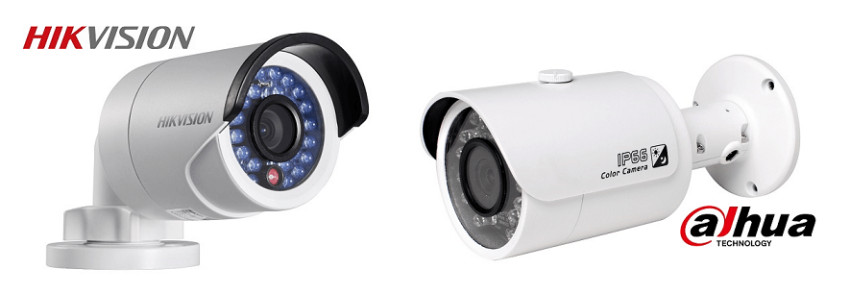
Cloud-based Network Video Recorder (NVR) systems have revolutionized the way we store and manage surveillance footage. With the ability to securely store and access video recordings remotely, cloud NVR solutions offer enhanced flexibility, scalability, and cost-efficiency compared to traditional on-premises systems. In this article, we will delve into the cloud NVR offerings of two prominent industry leaders, Dahua and Hikvision, and compare their features, functionalities, and overall performance.
Dahua Cloud NVR
Dahua Technology is a renowned global provider of video surveillance solutions. Their cloud NVR system is designed to streamline the video management process by offering a comprehensive set of features:
Cloud Storage: Dahua's cloud NVR solution enables users to securely store video footage in the cloud, eliminating the need for physical storage devices and reducing the risk of data loss or theft. The cloud storage capacity can be easily scaled up or down based on specific requirements.
Remote Access and Playback: With Dahua's cloud NVR, users can access live and recorded video footage remotely from any internet-connected device, such as smartphones, tablets, or computers. This allows for convenient monitoring and playback, ensuring real-time situational awareness.
Intelligent Analytics: Dahua's cloud NVR system incorporates advanced video analytics capabilities, such as motion detection, facial recognition, and people counting. These analytics tools enhance the efficiency of video surveillance by automating monitoring tasks and providing actionable insights.
Security and Privacy: Dahua prioritizes the security and privacy of user data by implementing robust encryption protocols and access controls. Their cloud NVR system ensures that video footage remains confidential and protected from unauthorized access.
Hikvision Cloud NVR
Hikvision is a globally recognized leader in video surveillance solutions, offering a wide range of products and services. Their cloud NVR system encompasses several noteworthy features:
Scalability and Flexibility: Hikvision's cloud NVR allows users to easily scale their storage capacity as per their evolving needs. The system accommodates large amounts of video data, ensuring seamless expansion without the hassle of hardware upgrades.
Smart Search and Playback: Hikvision's cloud NVR incorporates intelligent search algorithms, enabling users to quickly locate specific incidents or events within vast amounts of recorded footage. This feature significantly reduces the time and effort required for video analysis.
Easy Integration: Hikvision's cloud NVR system integrates smoothly with their broader ecosystem of security products, including cameras, access control systems, and video management software. This seamless integration enhances the overall efficiency and effectiveness of the surveillance infrastructure.
Redundancy and Data Protection: Hikvision emphasizes data redundancy and protection by utilizing redundant storage and backup mechanisms within their cloud NVR architecture. This ensures that video footage remains accessible and intact, even in the event of hardware failures or network disruptions.
Comparison
Both Dahua and Hikvision offer robust cloud NVR solutions with unique features and advantages. However, certain factors may influence the choice between the two:
Product Ecosystem: If you already have existing security products from either Dahua or Hikvision, opting for their respective cloud NVR system would ensure seamless integration and interoperability.
Specific Requirements: Evaluate your specific surveillance requirements, such as the number of cameras, desired analytics capabilities, and storage capacity. Compare the offerings of both vendors to determine which aligns better with your needs.
Cost Considerations: Compare the pricing models, including storage costs, subscription plans, and additional fees, to ascertain the long-term financial implications of adopting either Dahua's or Hikvision's cloud NVR system.
Dahua and Hikvision are prominent providers of cloud NVR systems, each with its strengths and offerings. Ultimately, the choice between Dahua and Hikvision should be based on factors such as existing infrastructure, specific requirements, and cost considerations. By carefully evaluating these aspects, organizations can select the cloud NVR solution that best suits their surveillance needs, leveraging the benefits of cloud-based video storage, remote access, and intelligent analytics for enhanced security and operational efficiency.





